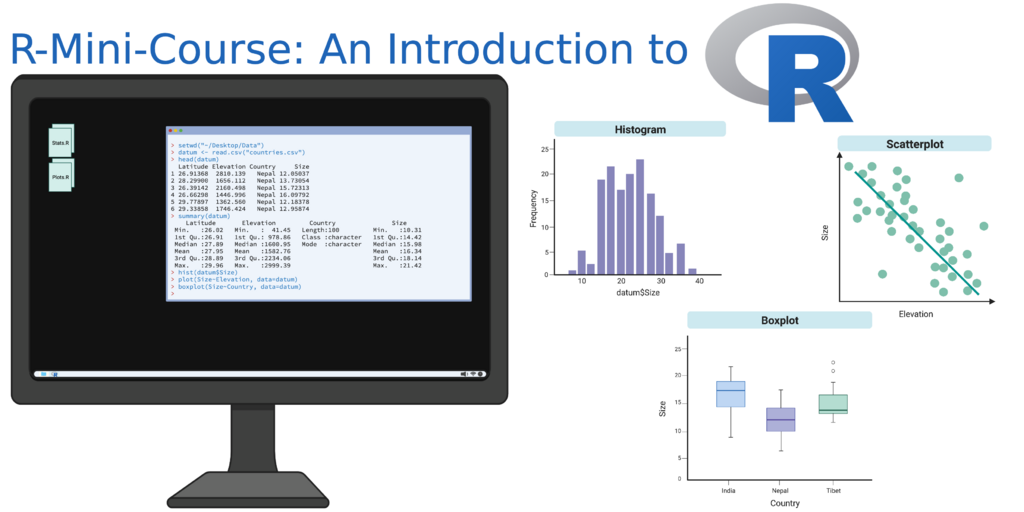
As biology becomes more data driven, teaching students data literacy skills has become central to biology curriculum. Despite a wealth of online resources that teach researchers how to use R, there are few that offer practical laboratory-based exercises, with teaching resources such as keys, learning objectives, and assessment materials. Here, we present a modular set of lessons and lab activities to help teach R through the platform of RStudio. Both software applications are free and open source making this curriculum highly accessible across various institutions. This curriculum was developed over several years of teaching a graduate level computational biology course. In response to the pandemic, the class was shifted to be completely online. These resources were then migrated to GitHub to make them broadly accessible to anyone wanting to learn R for the analysis of biological datasets. In the following year, these resources were used to teach the course in a flipped format, which is the lesson plan presented here. In general, students responded well to the flipped format, which used class time to conduct live coding demos and work through challenges with the instructor and teaching assistant. Overall, students were able to use these skills to practice analyzing and interpreting data, as well as producing publication quality graphics. While the modules presented range from very basic, doing simple summary statistics and plotting, to quite advanced, where R is integrated onto the command line, teachers should feel free to pick and choose which elements to incorporate into their own curriculum.
Primary Image: R‐Mini‐Course: An Introduction to R. The primary image was generated with BioRender to be a small representation of the applicability of R that we cover in our course.

Aviva Liebert onto Data Analysis
@
on